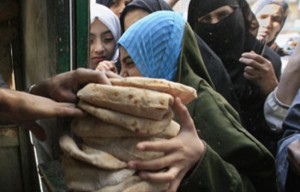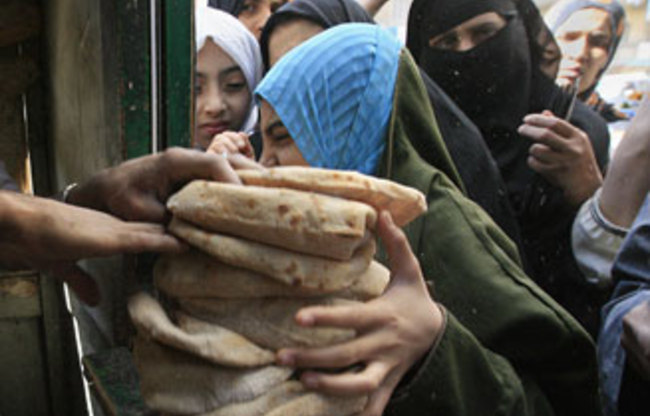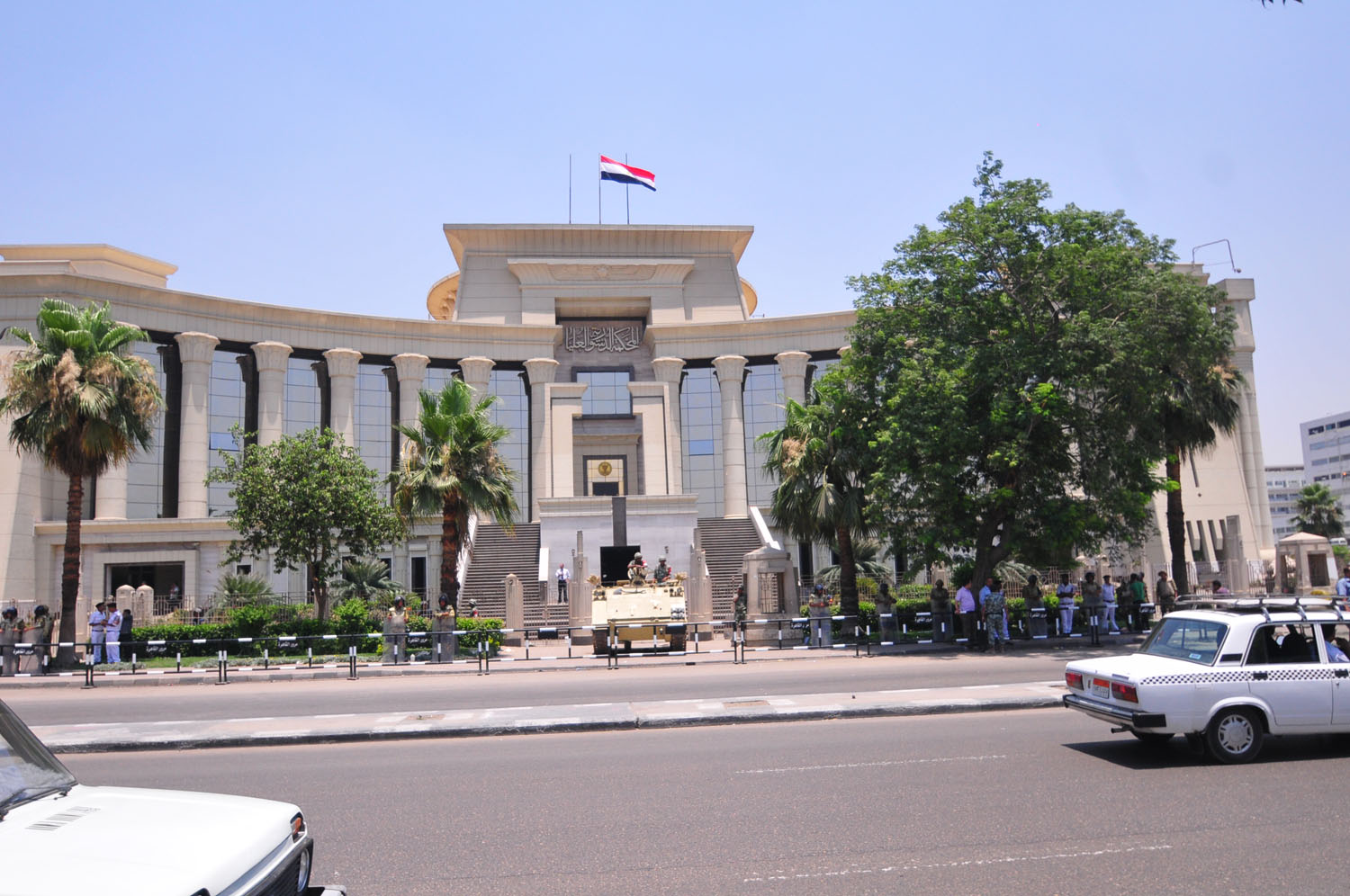
(AFP Photo)
The new subsidy system for basic food commodities should not only include an increase in its budget allocations, but also the “ultra poor” segment of society, economy professor at Al-Azhar University Karima Korayem said, in reference to the government’s decision to increase subsidies by EGP 200m in the new budget.
Subsidies on basic food commodities in the new budget increased to stand at EGP 34.05bn, marking a 10% increase compared to EGP 33.8bn in FY 2013/2014, according to a Monday statement from the Ministry of Finance.
In the current fiscal year, which will end 30 June, food commodity subsidies recorded an EGP 1.3bn increase from FY 2012/2013.
The state’s budget for subsidised bread in the new fiscal year registers EGP 24bn, recording an EGP 2bn increase from EGP 22bn in FY 2013/2014.
Korayem stated that the new smartcard bread subsidy system, launched by the government in March, makes it harder for bread to reach the “ultra poor”. This segment, she said, is not defined by the state, and thus will not be able to register in the new system.
The new smartcard bread subsidy system provides high quality subsidised bread at five piastres a loaf, and offers a maximum of 150 loaves for each registered citizen per month, according to Minister of Supply Khaled Hanafy. The system is currently implemented in three governorates.
The Ministry of Supply was urged to consider the move after Hanafy announced in March that the bread distribution system in Egypt is a “failure” and has wasted between 20% and 25% of the state’s budget for bread subsidies.
“Under this system, those who were buying subsidised bread with 5 piastres a loaf will not get it if they don’t have a smartcard,” Korayem stated, adding that the government should review its data base so as to include those who “really deserve the subsidy” rather than increase its budget to allocation to bread subsidies.
Meanwhile, economy professor at Cairo University Fakhry El-Fekky said that the government increased the budget allocation of the bread subsidy system in an effort to provide an adequate amount of money for importing wheat and fighting the smuggling problem.
The budget allocation to the ration cards system, which allows citizens to access sugar, food oil and rice at subsidised prices, stands at EGP 13bn in FY 2014/2015 compared to EGP 10bn in FY 2013/2014.
The number of ration cards amounts to 18.7m, benefiting around 67 million citizens, which is equivalent to 80% of the population, according to the finance ministry.




